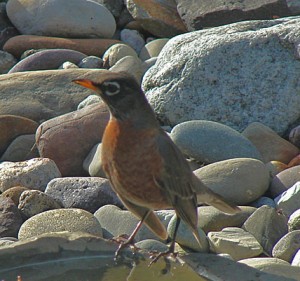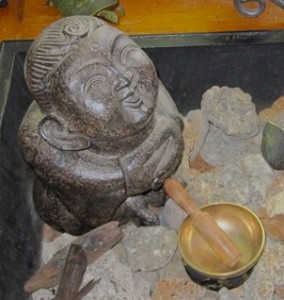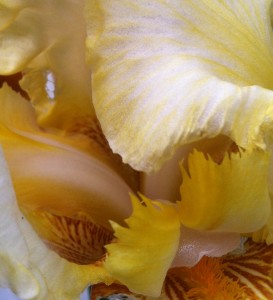 Sitting in a public garden, under the shade of a garden house, I look up to see a robin sitting on the nest she built under the eaves just off to the left. I apparently do not disturb her, sitting only a few feet away. Nor do the number of people who pass nearby or the Siamese cat that wanders in and out of the spent azaleas lining the edge of the brick walkway.
Sitting in a public garden, under the shade of a garden house, I look up to see a robin sitting on the nest she built under the eaves just off to the left. I apparently do not disturb her, sitting only a few feet away. Nor do the number of people who pass nearby or the Siamese cat that wanders in and out of the spent azaleas lining the edge of the brick walkway.
The robin is just sitting … her intent, I’m sure, is to keep her two or three heavenly blue eggs warm so that the babies growing inside of them will enter into the world in perfect health. She simply stares into space, occasionally moving her tail over the edge of the nest a bit, dropping a small black and white speck of feces. She then moves back in place over the eggs, continuing to sit in what I decide is the way the Buddha would sit had he been a bird.
I wonder what she is thinking about. Is she concentrating on her breath the way I do when I meditate, going with the ebb and flow of air in and out of my lungs? Is she listening to the songs of the other birds around her? Contemplating tiny movements in the eggs she is guarding with her life? Do birds actually think? Or do they simply follow the natural rhythms of life; ancient messages that send them from continent to continent in search of warmth and abundant food as the seasons change.
What made me choose this spot, on this particular bench to sit upon? I was looking for a quiet place where I could contemplate my life, the day spreading out before me, and to receive those unspoken messages about where I will go next. Is there actually a destination I’m yearning for or shall I just move forward one or two steps and see where my legs take me? The question of “why” pops up every time another thought comes to mind, and the process stops dead in its tracks.
I take another deep breath, noticing how it feels as I slowly let it go. I wait a moment before inhaling again. Where will I go today and how will it be as the sun goes over the edge and the stars begin to appear? Does it matter as long as I move? Or shall I sit beside the Robin, following her cue?




